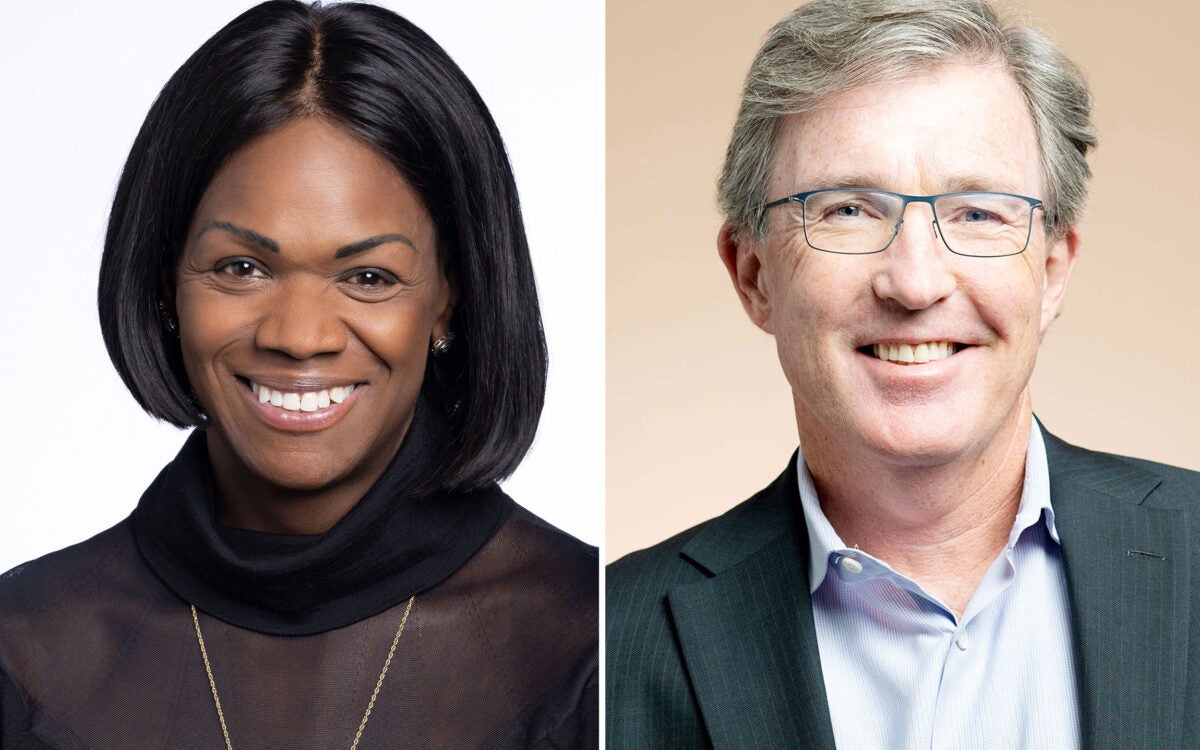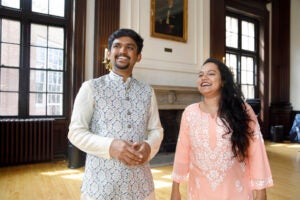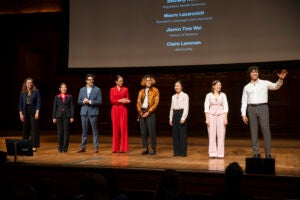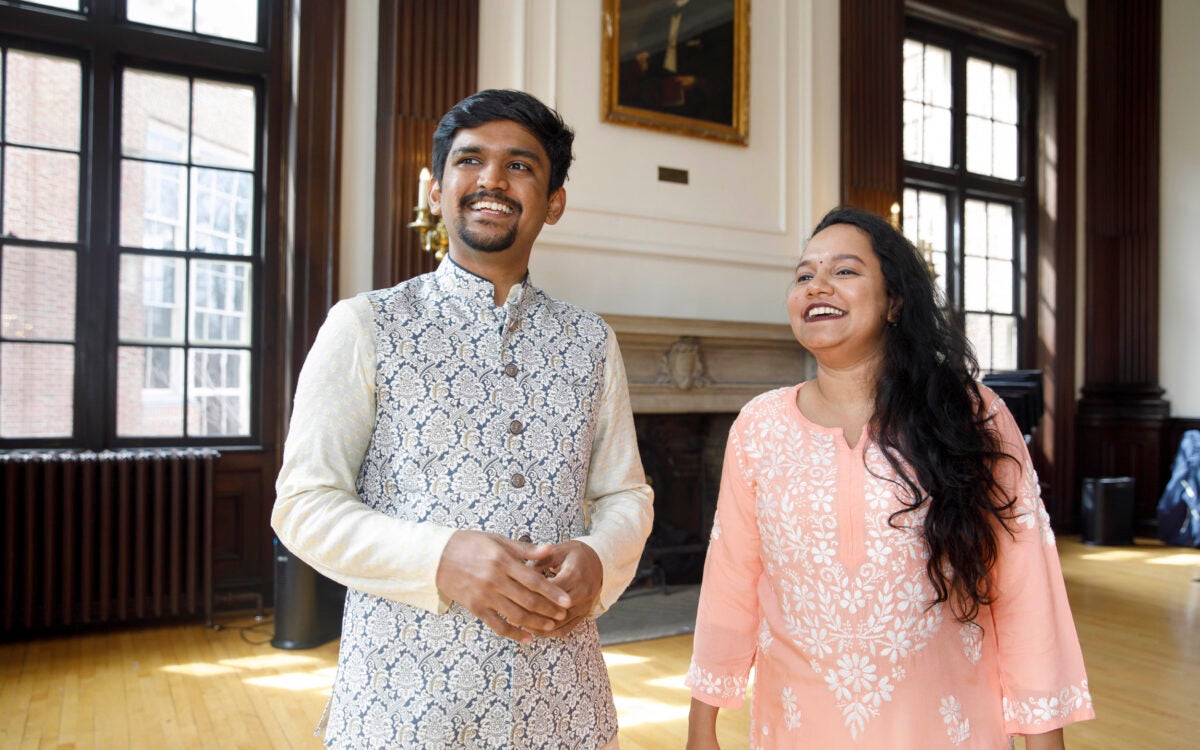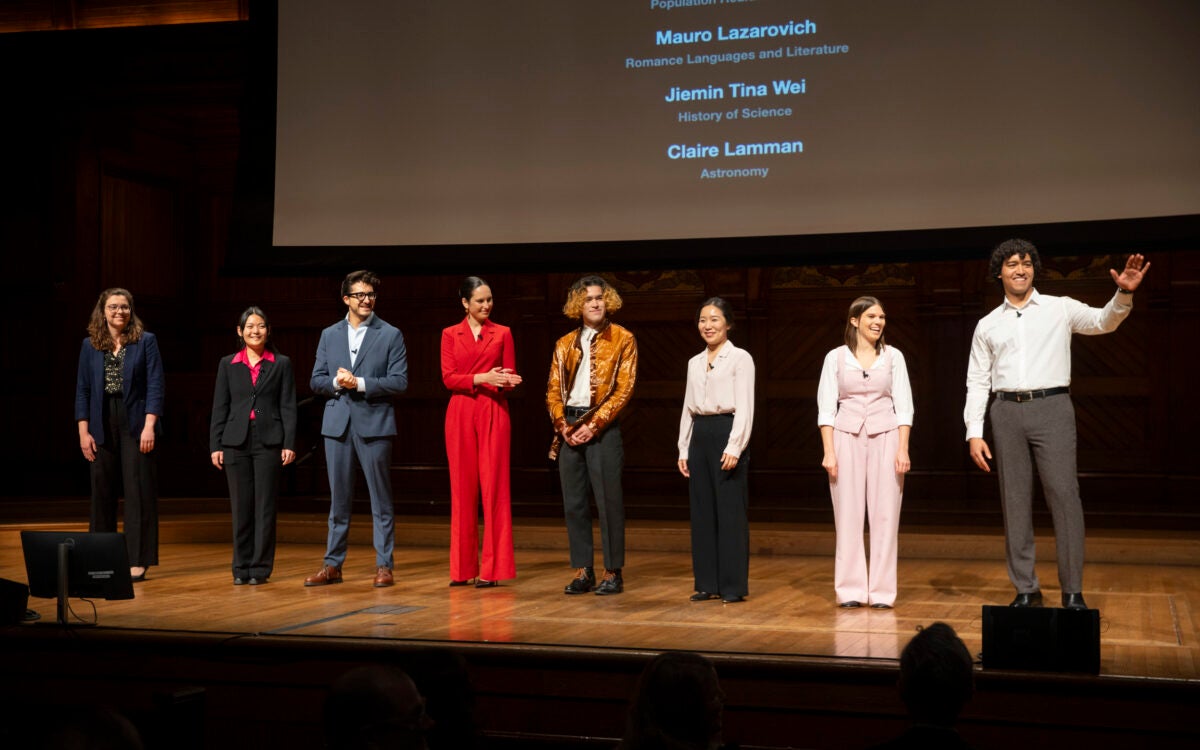Harvard creates new, University-wide committee to guide interdisciplinary efforts in science
$50 million committed to begin efforts
The Harvard Corporation has authorized the establishment of a new, University-wide standing committee on science and engineering to guide the University into a new era of collaborative, cross-disciplinary science initiatives. The Corporation also created a $50 million fund to provide initial support for the committee’s work, pending the submission of a budget by the committee.
At the same time, the Corporation asked Harvard Interim President Derek Bok and Provost Steven Hyman to work with interested Deans and Harvard-affiliated hospitals to develop plans for a new, interfaculty Department of Developmental and Regenerative Biology, for Corporation final approval this spring.
The creation of the Harvard University Science and Engineering Committee (HUSEC) and establishment of new University-wide science departments were among the chief recommendations in the December 2006 report on “Enhancing Science and Engineering at Harvard,” prepared over the course of the past year by a University-wide committee of Harvard scientists and Deans. (http://www.provost.harvard.edu/reports/final_report.pdf)
“It is clear from the excellent work of the University Planning Committee on Science and Engineering (UPCSE) that the sciences and engineering at Harvard will grow substantially in the coming years and that interdisciplinary work must be supported and encouraged if we are to take advantage of the exciting opportunities before us,” said Interim President Derek Bok. “But growth in interdisciplinary science needs to be carefully planned, in order to fit well with our important, ongoing efforts in the traditional scientific disciplines and departments. The actions by the Corporation will create an appropriate forum to provide the necessary guidance and oversight,” Bok said.
HUSEC will be chaired by the Provost and made up of 15 to 18 members in total, including Harvard faculty scientists and engineers, relevant Deans (Deans of the Medical School, the Faculty of Arts and Sciences, the School of Engineering and Applied Sciences, and the School of Public Health), and leaders from the Harvard-affiliated hospitals. HUSEC will advise the University’s senior leadership on, among other things, the creation and funding of new cross-School departments and committees and the allocation of resources for new interdisciplinary science ventures, including faculty slots, resources for students and education, and physical space and equipment. While HUSEC will not advise on matters internal to existing School-based departments, it will serve as a forum for the discussion of major new initiatives in science and engineering undertaken by the relevant Deans, to ensure planning and coordination in the long-term interest of the University.
Joseph Martin, Dean of Harvard Medical School, noted the importance of “continuing University-wide science planning, and having that process include representatives from various faculties and our affiliated hospitals. I look forward,” Martin said, “to further discussions and deliberation on defining the options that will yield the most vibrant and innovative science across the University.”
Provost Steven Hyman added that as Harvard prepares to build a major new science complex in Allston, and prepares to expand its interdisciplinary and collaborative science initiatives, “it is very important that we engage faculty and Deans in the planning process in a regular and transparent manner. HUSEC will create such a mechanism.”
Jeremy Knowles, Dean of the Faculty of Arts and Sciences, observed that “as the barriers between scientific disciplines tumble, the creation of this committee promises to shape bold collaborative ventures in scientific teaching and research across the University. I look forward to the new era this initiative anticipates.”
Andrew Murray, the Herchel Smith Professor of Molecular Genetics, Director of the Bauer Center for Genomics Research, and one of the three co-chairs of UPCSE, said he was “extremely pleased” by the Corporation’s actions.
“That the members of the Corporation have endorsed the establishment of a standing University Science and Engineering Committee, and requested that work begin to establish a new University-wide Department of Developmental and Regenerative Biology, convinces me that the committee – and the faculty members who provided us with advice and counsel – have been heard. That is gratifying for the members of the committee,” said Murray, “but even more important, it is reassuring to those of us who want to ensure that Harvard’s science and engineering enterprise continues to advance knowledge, spur innovation in research and education, and contribute to human health and well-being.”
